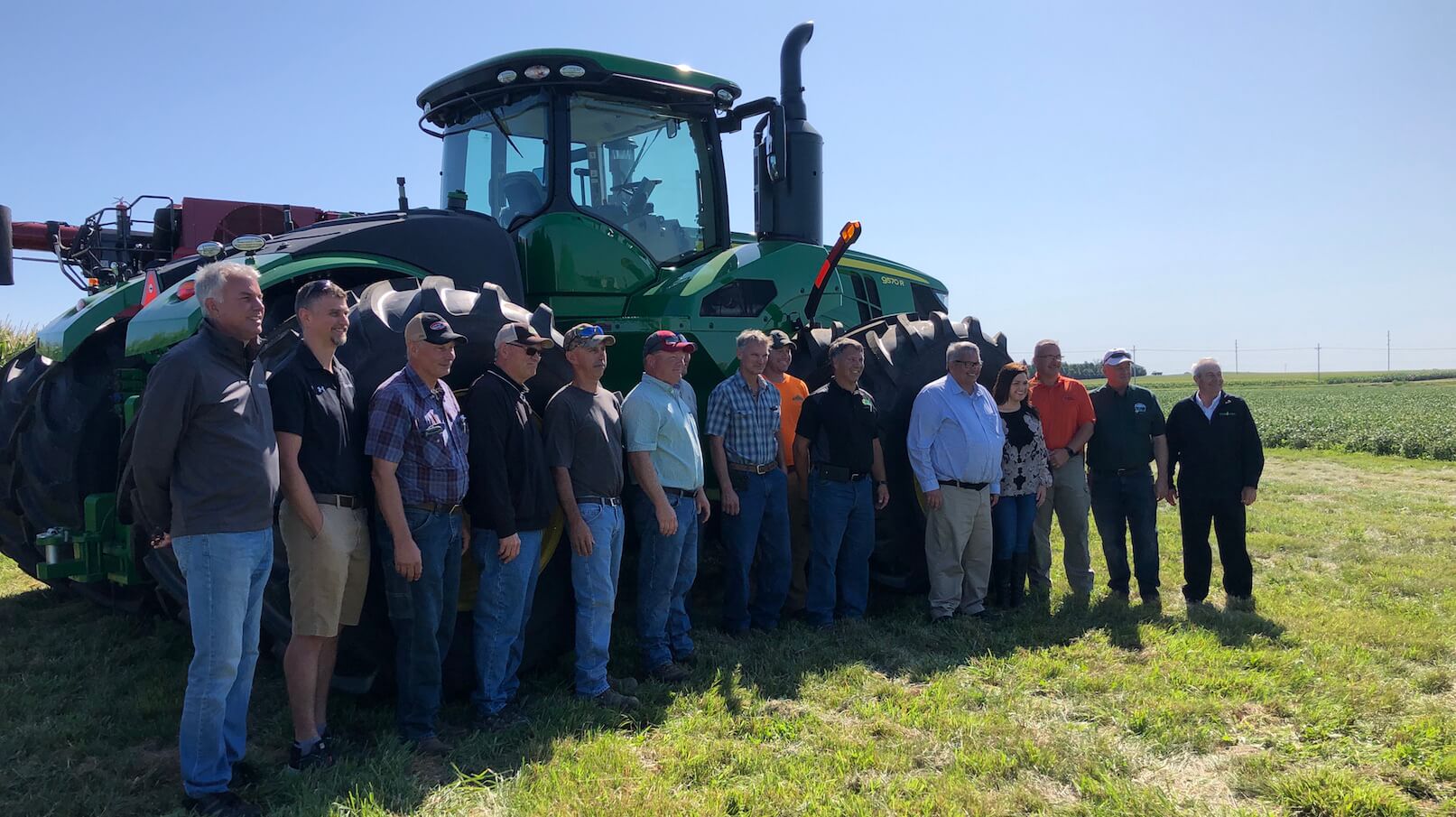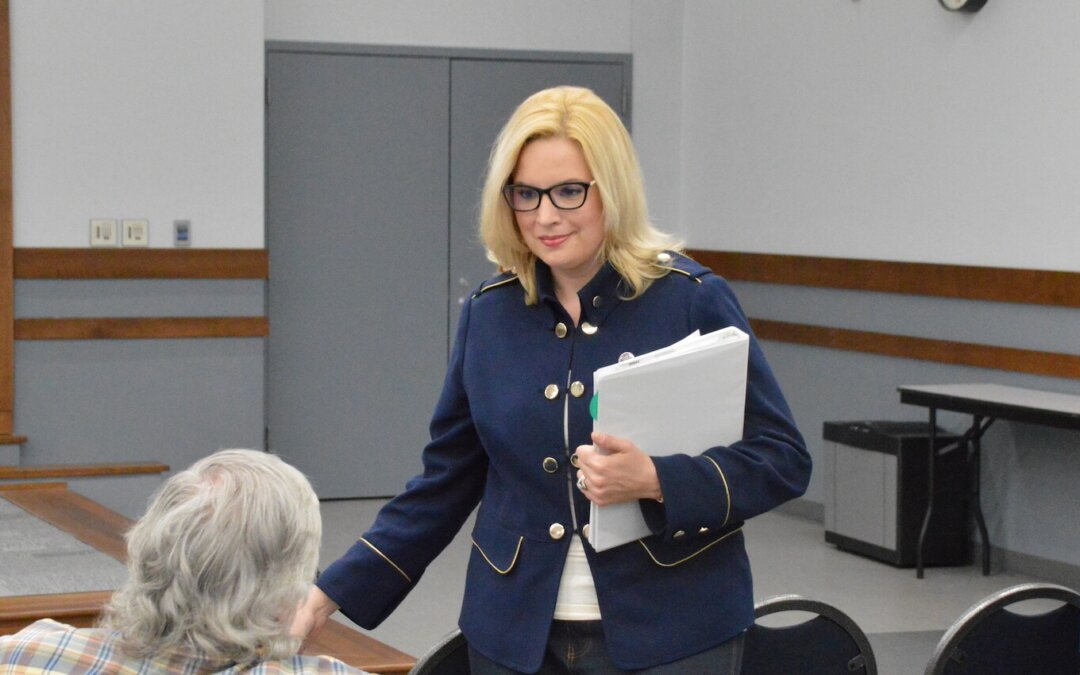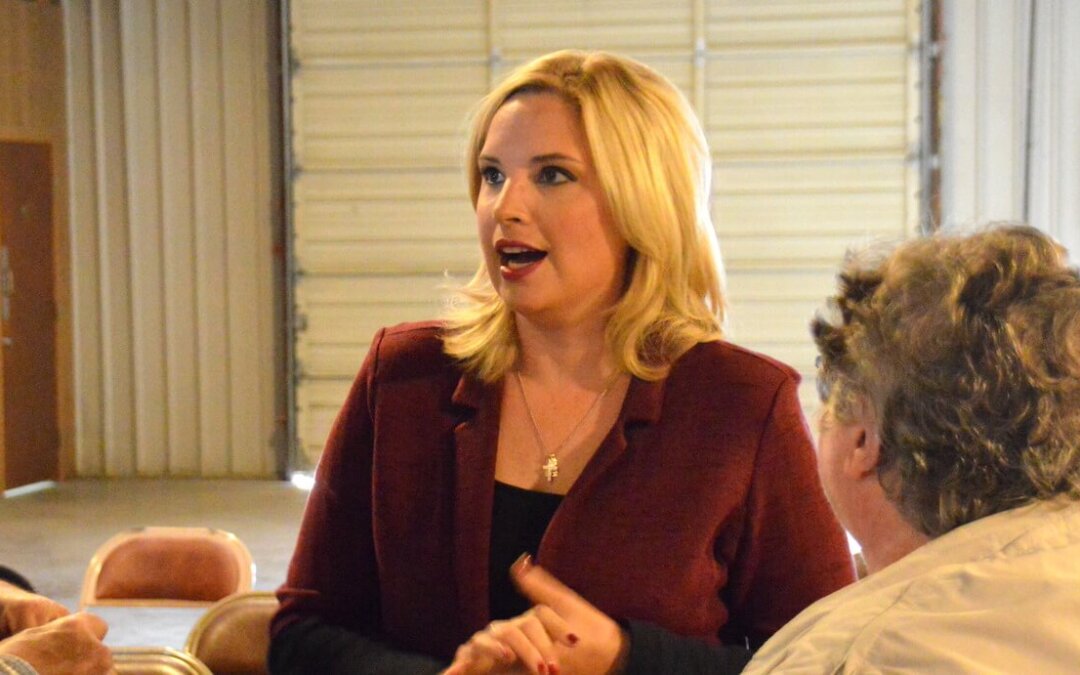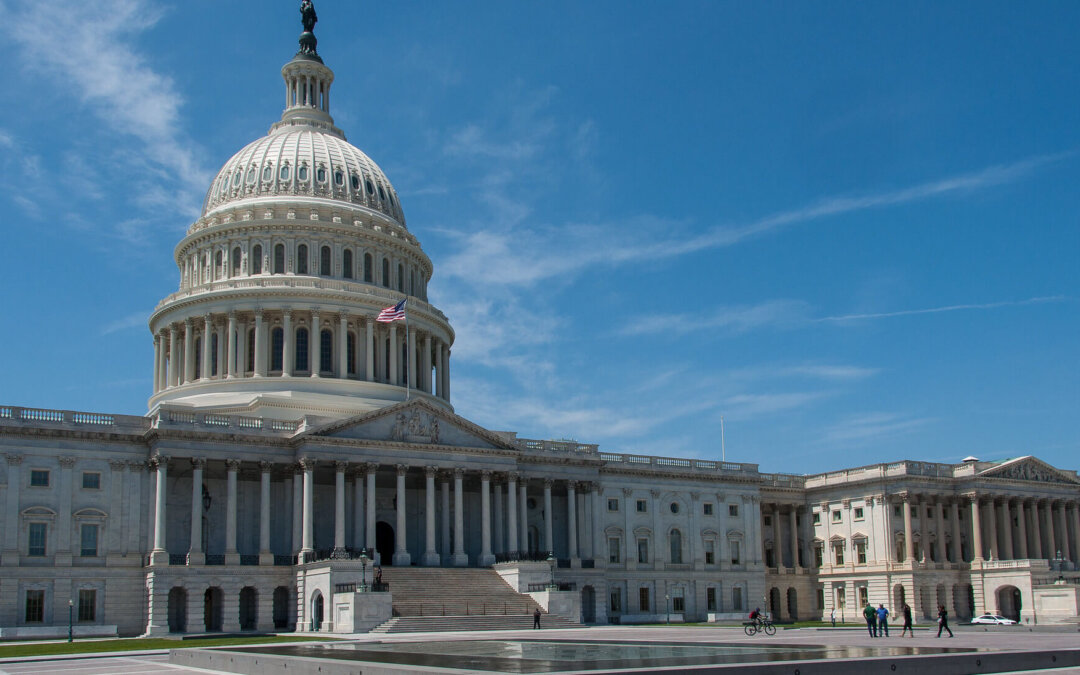
Photo: Finkenauer meeting with farmers in district earlier this month.
Iowa Congresswoman Abby Finkenauer wasted no time this week jumping back into her work in Washington after a long summer recess in the 1st District.
On Tuesday, as chair of the Small Business Subcommittee on Rural Development, Agriculture, Trade, and Entrepreneurship, Finkenauer led a hearing on the clean energy economy.
“The clean energy economy has had an especially beneficial impact on small towns and rural areas,” said Finkenauer, an outspoken advocate for Iowa’s renewable energy sector and agriculture industries. “Rural communities in the Midwest, in states like Iowa, have experienced notable growth in renewable energy. These industries are proven job creators, adding more than 8,000 new jobs in 2016.”
The first-term congresswoman has been highly critical of President Donald Trump for his mockery of wind turbines — more than 36% of energy generated here comes from wind — and his administration’s undermining of the Renewable Fuel Standard.
“I do have to note, no, wind energy does not cause cancer,” Finkenauer said, at the committee hearing. “Sadly, I jokingly say that, but unfortunately we need to say that. I know that is something that the administration and our president has talked about, and it’s not true. The facts are that wind energy is good for our communities and good for the environment, and something that we should be respecting and supporting, not making fun of or creating false lies about.”
[inline-ad id=”0″]
Yesterday, Bloomberg News reported President Trump “has tentatively agreed to a plan bolstering ethanol and biodiesel” after meeting this week with Midwestern senators concerned about the Environmental Protection Agency’s proliferation of Small Refinery Exemptions, which have contributed to multiple plant shutdowns across the country.
Iowa’s junior U.S. Sen. Joni Ernst tweeted Wednesday she had “a productive meeting” with Trump about the Renewable Fuel Standard.
“Iowans’ voices are being heard and progress is being made,” said Ernst, in a tweet.
Tied to the clean energy economy is ethanol production, an industry harmed by the EPA’s issuance of refinery waivers to large oil producers, allowing them to skirt federal regulations that require biodiesel blends.
Among those called to testify at the committee hearing was Tom Brooks, general manager at Western Dubuque Biodiesel in Farley, Iowa. He centered his remarks on the biodiesel tax credit, which expired at the end of 2017.
“I would like to emphasize that the biodiesel blender’s tax incentive has helped achieve the desired goal of expanding domestic production of clean energy resources and jobs here at home,” said Brooks. “In turn, the increased use of biodiesel has helped the United States realize economic and environmental benefits. These benefits, however, are in jeopardy without quick reinstatement of the biodiesel tax incentive and stable policy over the long term.”
Finkenauer has led a bipartisan bill to reinstate the tax credit as part of a broader tax package approved earlier this year by the House Ways and Means Committee.
Nationwide, the biodiesel industry supports more than 65,000 jobs and $11 billion in economic impact, Brooks said.
“Right now, policies are not stable,” Brooks told the committee members. “At the beginning of this year, biodiesel producers were being forced to put projects on hold, reduce investments due to uncertainty about the renewable of the tax incentive and the growing number of Small Refinery Exemptions being handed out by the EPA.
“It’s ironic that the EPA has such concern for the economic hardships facing small [oil] refineries,” he continued. “The exemptions the agency is granting to each refinery that asks are simply shifting the hardship to even small bio-producers, small businesses like mine.”
By Elizabeth Meyer
Posted 9/14/19
Politics

Biden marks Earth Day by announcing $7 billion in solar grants
The Biden administration on Monday announced the recipients of its Solar For All Program, a $7 billion climate program that aims to lower energy...

6 terrifying things that could happen if the Comstock Act is used to target abortion
Does 1873 sound like a really, really long time ago? Well, that’s because it is—but if Republicans and far-right anti-abortion activists have their...
Local News

No more Kum & Go? New owner Maverik of Utah retiring famous brand
Will Kum & Go have come and gone by next year? One new report claims that's the plan by the store's new owners. The Iowa-based convenience store...

Here’s a recap of the biggest headlines Iowa celebs made In 2023
For these famous Iowans, 2023 was a year of controversy, career highlights, and full-circle moments. Here’s how 2023 went for the following Iowans:...




